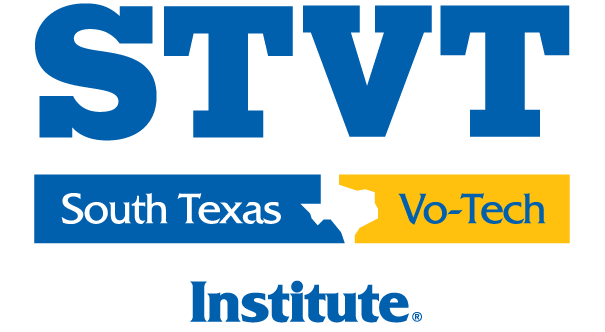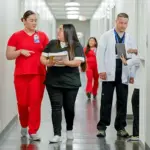Having strong soft skills can help aspiring combination welders become invaluable team players and competent professionals. These skills can help enable professional welders to navigate the demands of the workplace by ensuring they understand what is expected of them and when tasks are due. These skills can also help welders complete their tasks in a timely manner. Furthermore, strong soft skills can help professional welders quickly adjust to changing project needs, and consistently produce quality welds.
What Are Soft Skills?
Soft skills are interpersonal skills that allow individuals to effectively work with others. Unlike hard skills, which are specific to certain jobs or tasks, soft skills include things like teamwork, adaptability, empathy, active listening, and conflict resolution. These skills are important for building good working relationships, increasing productivity, and creating a friendly workplace. For welders and workers in different areas, having good soft skills is important for moving up in a career and being happy at work.
Key Soft Skills for Combination Welders
Having strong soft skills can help welders become invaluable team players and competent professionals. These skills allow professional welders to effectively communicate with coworkers, understand what’s expected of them, and assist others, as necessary, to complete tasks in a timely manner. Furthermore, strong soft skills prepare professional welders to adjust to changing project needs while consistently producing quality welds.
Teamwork and Collaboration
Welding often involves working alongside other tradespeople, such as electricians, plumbers, and engineers, on large-scale projects. Professional welders should be able to collaborate effectively with various professionals and thrive in a team setting. In industries like construction and manufacturing, clear communication among team members helps those involved complete projects safely and according to schedule. This also allows welders to share their expertise, learn from others, and create a supportive work environment.
Communication Skills
Welders often communicate with supervisors, coworkers, and clients to help ensure project success. They often explain technical details, discuss potential issues, and interpret complex instructions. Effective communication can help avoid costly errors and keep the project on schedule, which can benefit the entire team by promoting collaboration and reducing misunderstandings. When welders provide clear feedback and updates, it can lead to better decision-making and resource allocation to help ensure the client receives a high-quality end product. This clarity can help enhance jobsite safety and boost overall efficiency and project outcomes.
Problem-Solving and Critical Thinking
Effective problem-solving and critical thinking can enable welders to swiftly adapt to unforeseen challenges like misaligned parts, improper fits, and defective material. These skills help welders identify the root cause of issues and develop viable solutions, which can lead to more efficient and cost-effective project completion. For welders, these skills lead to increased confidence and the ability to troubleshoot equipment issues efficiently, ensuring that adjustments are made promptly to maintain quality and safety standards.
Since welders often work with hazardous equipment and material, they must be able to identify potential safety risks and unsafe conditions. They should also make quick decisions to mitigate these risks and protect both themselves and others.
Strong problem-solving and critical thinking skills can result in a smoother project execution, safe working conditions, reduced costs, and a high-quality final product that meets or exceeds expectations.
Attention to Detail
Precision is key in welding, as small errors can compromise the integrity of a structure or the overall quality of the work. Attention to detail is vital in ensuring that welds are clean, safe, and meet industry standards. This includes meticulous preparation, adherence to safety protocols, and thorough inspection of work to identify any potential flaws. Welders with excellent attention to detail can produce high-quality welds consistently, leading to satisfied clients and a positive reputation in the industry.
Adaptability
Projects are rarely straightforward, and welders should be able to adapt quickly to changes in project specifications or client requests. They may also need to adjust their techniques when working with different materials, equipment, or environments. The ability to remain flexible and adaptable allows welders to deliver quality work while meeting tight deadlines. This skill also shows employers that a welder is open-minded and eager to learn new techniques, making them an invaluable asset for any project.
How Soft Skills Can Help Enhance Career Opportunities
Employers often seek professionals who bring soft skills to the table since they can help maintain smooth project workflows, improve teamwork, and reduce errors. They may look for reliable, communicative, and detail-oriented individuals who can contribute to both the technical and interpersonal aspects of the job. The ability to effectively collaborate, communicate needs, and adapt to challenges demonstrates a welder’s commitment to the overall success of a project, which can be highly valued in the industry.
Welders who possess strong soft skills may advance more quickly into leadership roles, such as welding supervisors or foremen. Interpersonal skills and problem-solving abilities can become especially valuable when overseeing a team or managing large-scale projects. As welders progress in their careers, their ability to navigate team dynamics, provide guidance, and tackle challenges effectively can help set them apart from their peers, leading to increased opportunities and professional growth.
Prepare for Career Success with a Well-Rounded Skill Set
At South Texas Vocational Technical Institute (STVT®), our Combination Welding program can help students develop soft and hard skills. Through hands-on training and classroom instruction, students learn hard skills like various welding techniques, safety protocols, how to interpret blueprints, and more. Students also have the opportunity to practice collaborating with others, communicating effectively in a team setting, and adapting to changing project needs.
By incorporating soft skills into welding training, STVT can help graduates enter the job market with a well-rounded skill set that meets industry demands. This can give them a competitive advantage in their job search and help them excel in their careers.
Soft skills are essential for welders to succeed in the industry. Effective communication, problem-solving abilities, attention to detail, and adaptability may lead to safer working conditions, improved project outcomes, and enhanced career opportunities.
Interested in how our Combination Welding program can help you reach your goals? Call 866-480-9766 or submit this form for more information.


